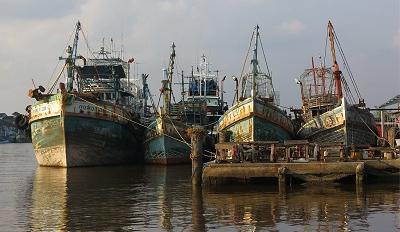
The 2019 U.S. Department of State Trafficking in Persons (TIP) Report was released last week. Rightly so, Thailand remained at its previous ranking of Tier 2. This ranking is reserved for countries that do not meet the minimum standards to address human trafficking but are making efforts to do so. Maintaining the Tier 2 status is consistent with the Thai Seafood Working Group’s recommendation, yet the U.S. government missed an opportunity to focus Thai authorities and businesses on the structural changes needed to prevent labor trafficking in the country.
In particular, the report does not encourage the Government of Thailand to reform labor laws to allow all workers, including migrant workers, fundamental rights to freedom of association and collective bargaining. The report notes “weaknesses in Thailand’s labor laws preventing migrant workers from forming labor unions may have contributed to exploitation.” This is a particularly weak stance to take, as international and Thai trade unions, NGOs, civil society organizations, and UN agencies have been calling for this crucial legal reform in connection to labor trafficking prevention for more than a decade.
Indeed, this was the core recommendation of the AFL-CIO’s petition to the U.S. Trade Representative in November 2018. The petition calls for the Thai government to ratify ILO Conventions on Freedom of Association and Protection of the Right to Organise (C87) and on the Right to Organise and Collective Bargaining (C98), and to reform national laws to allow all workers these basic rights, which would address the root cause of labor trafficking in the country’s migrant-dominated sectors. The U.S. Department of State could have bolstered this recommendation by including it among the 13 key recommendations at the top of the 2019 TIP Report.
This refusal on the part of the Thai government silences migrant workers and prevents them from representing their interests to employers and to policy makers. It leaves migrant workers without the legal protections needed to organize, engage in collective bargaining, and defend their own rights to prevent situations of forced labor or labor trafficking. There are an estimated 4 million migrant workers from neighboring Southeast Asian nations in Thailand, whose labor the Thai government willingly and readily profits off of, and who do not have their fundamental human rights of freedom of association and the right to collectively bargain respected.
The 2019 TIP Report does highlight some key structural issues underpinning the heightened risk of labor trafficking among migrant workers, including the lack of enforcement of laws requiring employment contracts in a workers’ own language, lack of enforcement of the minimum wage in sectors with high employment of migrant workers, and difficulty for migrants to change employers, among others. The report also notes that recruitment agencies, brokers, and employers continue to charge migrant workers illegal fees for recruitment or to obtain the proper documentation to get a certain job – a practice that fosters situations of forced labor in the form of debt bondage.
Stakeholders are largely in agreement that the Thai government has made significant legal, policy, and regulatory changes aimed at the fishing sector. And the Thai government was the first in Asia to ratify the ILO Convention on Work in Fishing (C188) in January this year. Yet, despite conducting 78,623 labor inspections on fishing vessels in 2018, the government was unable to report whether these inspections resulted in the identification of any labor trafficking cases. In this same year, UN agencies and human rights organizations have documented ongoing labor abuse on fishing vessels and significant problems with labor inspections in ports and at sea, including deterring workers from revealing information due to fears of retaliation. Meanwhile, the full adoption of C188 into Thai law is needed to guarantee fishers adequate working conditions on vessels. There is currently concern about the extent to which C188 will be effectively implemented and enforced.
Further, the Thai government continues to allow criminal and civil defamation lawsuits to be brought forward by private sector actors against workers, human rights defenders, and labor activists. The inaction of the Thai government – and willingness to give credence to these cases – has silenced and sown fear among many workers and rights advocates who have cases to bring forward on the abuses they face in the workplace. Labor trafficking cannot only be addressed through labor policies and legislation but must be analyzed holistically, and protection of freedom of expression is key to preventing and addressing egregious labor rights abuses, such as human trafficking. The U.S. State Department recognizes this in a key recommendation to the Thai government at the top of the report: “foster an environment conducive to reporting human trafficking crimes without fear of criminal prosecution, including spurious retributive charges pursued by employers.”
ILRF and the Thai Seafood Working Group are supportive of Thailand remaining at Tier 2 in the 2019 TIP Report. In order to address systemic forced labor of migrant workers in Thailand’s seafood and other industries, all actors, including the U.S. government, should take every opportunity to encourage the Thai government to guarantee workers’ rights to freedom of association and collective bargaining. Any further progress within the TIP ranking system should be pinned to all workers having these basic rights.


